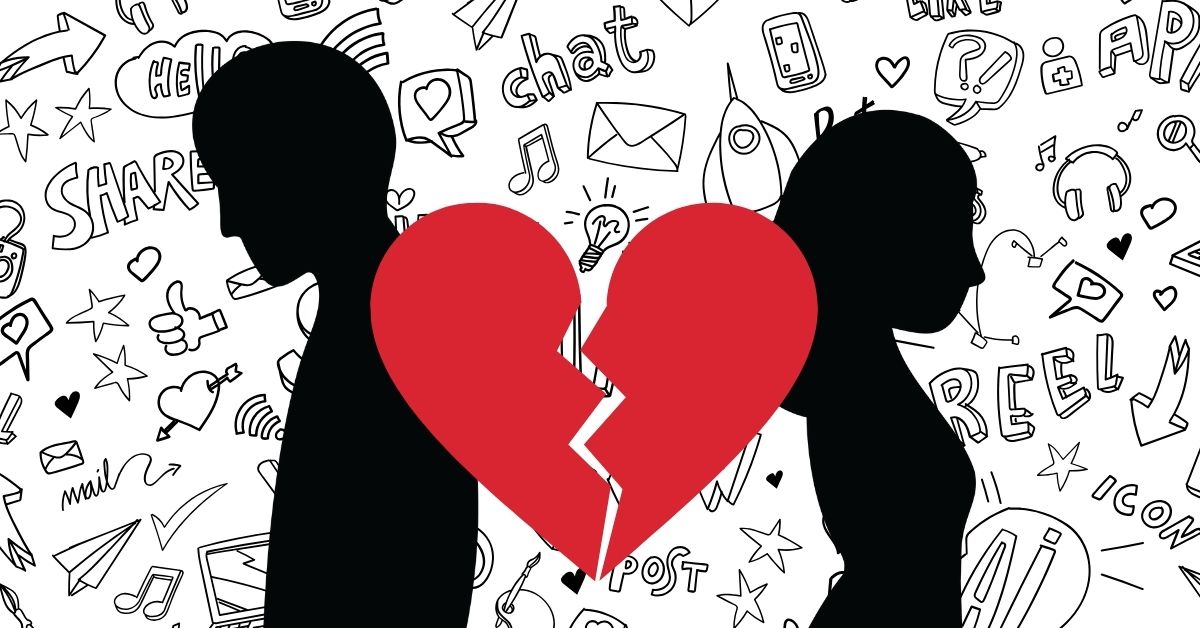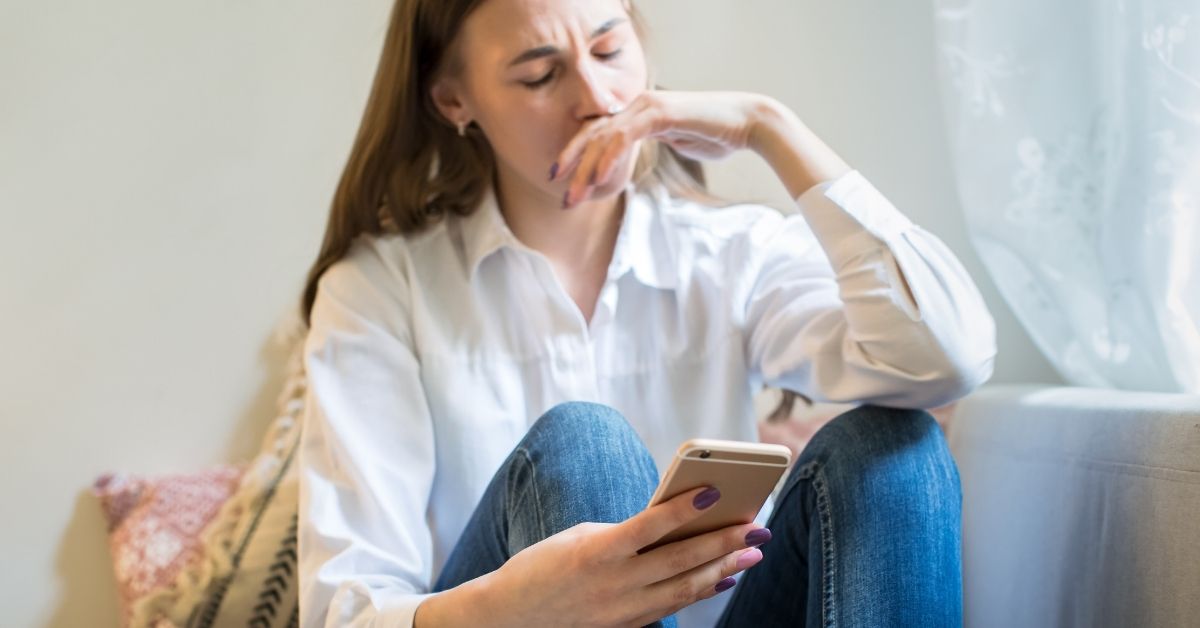
How to Navigate a Breakup in the Age of Social Media
Breakups at any stage of life are hard, but they can feel overwhelming when you’re reentering the dating world over 50—especially with the Internet so intertwined in our daily lives. Breakups and social media are now deeply connected, adding new layers to healing and moving forward.
If you’ve shared parts of your relationship online, untangling your digital world is just as important as healing emotionally. This guide will help you navigate these waters with practical, friendly advice. Whether you’re worried about seeing your ex’s updates or you’re unsure what to do with mutual friends online, we’re here to support you every step of the way.
The Emotional Toll of a Digital Breakup
Breakups can shake up your world, and seeing your ex online can make those feelings last longer. Many people feel heartsick after a split, but social media keeps memories fresh and often right in your face.
Studies suggest that over 70% of adults check an ex’s social media after a breakup—even if it makes them feel worse. That’s no surprise when platforms like Facebook, Instagram, and even LinkedIn remind us daily of people from our past.
These constant reminders can:
- Make it harder to let go
- Increase feelings of loneliness or jealousy
- Slow down your emotional recovery
If you feel stuck or sad, remind yourself:
- It’s normal to grieve a breakup offline
- You don’t have to keep tabs on your ex
- Most people post only their happiest moments—not the full story
Think about unplugging for a little while. Taking a break lets you focus on healing and reclaiming your real-life joy.
Setting Healthy Boundaries: Handling Breakups Online
One of the toughest parts about breakups and social media is learning when and how to set limits. After all, protecting your mental space is not only healthy—it’s essential.
Here are some simple steps for handling breakups online that really work:
- Mute or Unfollow: Silently remove your ex’s posts from your feeds. You’ll see less, but you won’t have to block or unfriend unless you want to.
- Block or Unfriend: If seeing their posts hurts, it’s okay to go further. According to one survey, over 45% of adults have unfriended or blocked an ex after breaking up. Your peace should come first.
- Tweak Your Privacy Settings: Limit who sees your updates and photos. Sometimes mutual friends can lure your ex into your space, even by accident.
- Stop notifications: Turn off alerts that could remind you of your past relationship, like “On This Day” memories or tagged photos.
- Resist the urge to check: As tempting as it is, resist checking their accounts. It almost always opens wounds or stalls your healing.
Remember, these boundaries are for your well-being—not for being spiteful. Creating space is a big part of why social media after a breakup can be a positive, healing experience when handled well.
The Dangers of the Social Media Comparison Trap
After a breakup, it’s super easy to fall into the “comparison trap.” You might see your ex having fun or dating someone new online and feel like you’re falling behind or missing out. But don’t forget—what you see is almost always just a highlight reel.
A recent study showed that people spend nearly 2.5 hours a day on social media, but more than one-third admit they feel worse after browsing. This is especially true after a breakup.
To avoid this, try these tips:
- Limit your social media time: Give yourself a digital detox, even if it’s just for a few days.
- Fill the time with something joyful: Read, try a new recipe, garden, or connect with friends in person. Offline, life feels different (and healthier!).
- Remind yourself: Everyone moves through breakups differently. Healing doesn’t have a timer.
Comparing yourself to others online won’t help. Try staying focused on your unique journey. That’s what breakups and social media should really be about—moving forward at your own pace, not theirs.
Rebuilding Your Confidence and Digital Identity
When a relationship ends, it can be hard to remember who you are and what makes you happy outside of that relationship. The good news? This is your chance for a fresh start!
Handling breakups online includes updating your profiles and curating your digital presence. Use this moment to:
- Change your profile picture: Pick something that makes you feel happy and confident.
- Share positivity: Post about new hobbies or interests. Share uplifting thoughts or local adventures you’re enjoying.
- Join online communities: Whether it’s gardening, book clubs, or travel groups, connecting with others can boost your mood and help you find new friendships.
- Set new boundaries: Only accept friend requests or connections that add something positive to your life.
A break from old patterns can lead to new joys. By making your online space truly yours, you can turn social media after a breakup into a tool for rediscovery and happiness.

Navigating Mutual Friends and Online Etiquette
After breakups, handling mutual friends can get tricky—especially online. If you and your ex share connections, you might worry about what to post or how to interact.
Here are some tips to make it easier:
- Don’t share too much: Avoid details or complaints about your breakup. Keeping things private shows respect for yourself and your friends.
- Reach out directly when needed: If you want to let mutual friends know about the breakup, do it privately—not in a public post.
- Don’t ask friends to “take sides”: It rarely works and can stress everyone out.
- Strengthen your support system: Reconnect with old friends and stay open to making new ones. It’s a great time to expand your circle!
Remember, most people want to support both of you through big transitions. Give your friends grace and understand they might not always know what to say or do at first.
How to Move Forward After Breakups and Social Media
Letting go isn’t easy, but you can make things a bit smoother for yourself by being patient and gentle with your progress.
Try these helpful steps:
- Focus on your self-care: Practice daily gratitude, get plenty of sleep, and eat well. These choices make healing easier.
- Set goals for yourself: Even small goals—like taking a new class or joining a group—can boost your confidence and happiness.
- Write about your experience: Journaling can help you process feelings and see your growth over time.
- Get extra support if you need it: Talking with a therapist or joining a support group is always a smart, healthy step.
Statistics show that almost 43% of adults over 50 find new fulfillment and joy after ending a long-term relationship—if they focus on personal growth and connection.
Remember, breakups and social media don’t have to define your future. These steps are tools, not roadblocks, in your journey to something better.
Your Next Chapter Awaits
You have the tools to manage breakups and social media. With healthy boundaries, self-love, and a little bravery, the digital world can become a space for healing and growth—not stress.
The end of one relationship is the beginning of a fresh adventure. Don’t let social media after a breakup keep you trapped in the past; use it to build a future that feels right for you.
Everyone’s journey looks different. Take small steps. Celebrate progress. And remember: new connections, new friends, and new joy are all waiting for you beyond the screen.











